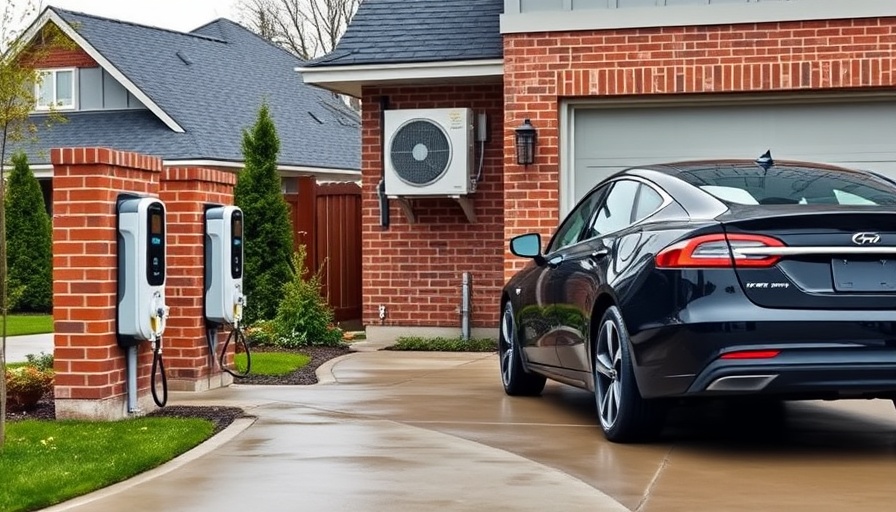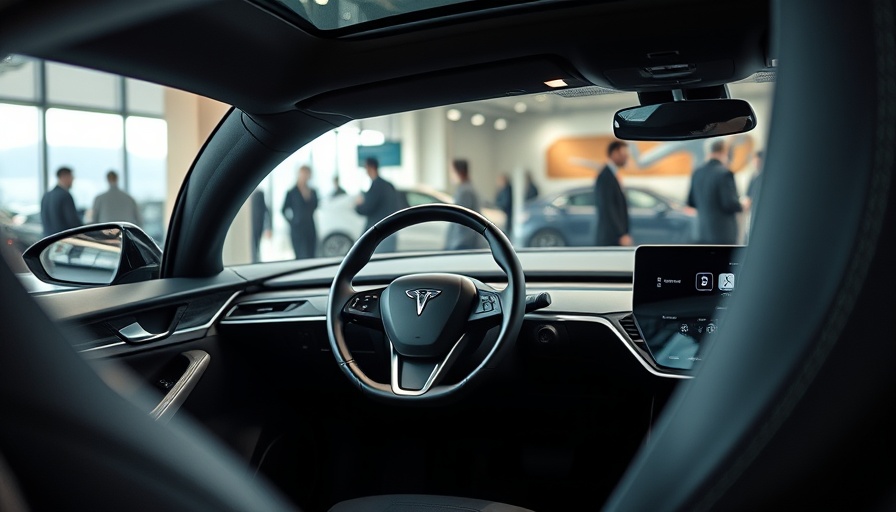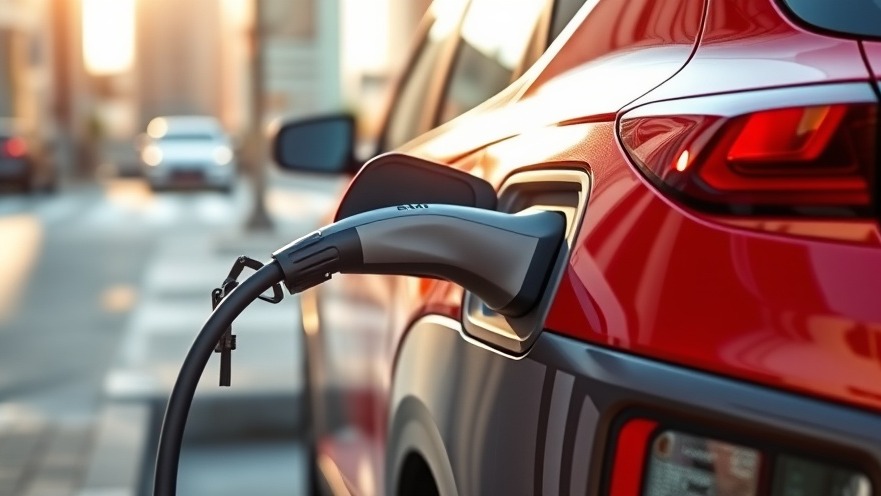
The Shift towards Electric Vehicles and Heat Pumps in the UK
As the world continues to grapple with climate change, the UK is showing promising strides in environmental sustainability. A recent report from the Climate Change Committee (CCC) reveals that sales of electric vehicles (EVs) and heat pumps are at an all-time high, indicating an encouraging transition towards clean energy. By increasing adoption rates of these technologies, the UK aims to cut emissions dramatically, aligning with its international pledge to reduce emissions by 68% by the year 2030.
Significant Sales Growth of Clean Energy Solutions
According to the CCC's assessment, the market share for new car electric vehicles surged to nearly 20% last year, while installation of heat pumps increased by a remarkable 56%. These figures not only reflect a growing public awareness of the importance of sustainability but also indicate a potential shift in societal attitudes towards eco-friendly technologies. This transformation is vital, as the UK grapples with the reality of high emissions primarily from the building and transportation sectors.
Government Role in Accelerating Transition
While progress is commendable, the CCC urges the UK government to take more substantial steps to ensure that renewable energy technologies remain accessible and affordable for households. Emma Pinchbeck, CEO of the CCC, emphasized the importance of low electricity costs to promote broader adoption. Having a supportive government policy will catalyze momentum in the renewables sector and establish the UK as a leader in climate action.
Challenges Ahead: The Cost of Clean Energy
Despite the optimistic growth in EVs and heat pumps, obstacles remain. High upfront costs can deter potential adopters, especially in the residential market where many households weigh the price tag against savings from lower utility bills in the long term. The ongoing transition to clean energy forces potential buyers to consider the immediate financial implications, making it more challenging to encourage rapid adoption.
Emerging Opportunities for Boutique Hospitality Professionals
For boutique hospitality professionals—such as eco-lodge operators and Airbnb hosts—these shifts in the energy landscape present unique opportunities. Investing in EV charging stations and heat pumps can not only enhance guest experiences but also position these businesses as sustainable choices for environmentally-conscious travelers. As demand for green tourism rises, integrating such technologies can distinguish properties in a crowded market.
Creating Public Awareness and Incentives
Establishing public awareness campaigns and offering incentives for homeowners and businesses to adopt clean technologies will be crucial. Effective communication about the benefits of heat pumps and electric vehicles, coupled with financial assistance programs, can alleviate some of the economic barriers to transition. Additionally, collaborating with microclimate initiatives and funds aimed at preserving biodiversity and protecting local nature reserves will reinforce the interconnectedness of technology adoption and environmental conservation.
The Urgency of Now: Future Predictions
The future of the UK’s commitment to climate action hinges on the acceleration of these technologies. To meaningfully contribute to global goals, the UK needs to ensure that the clean energy transition is inclusive and collaborative. By fostering government, businesses, and community partnerships, the next few years will be pivotal for achieving a net-zero economy.
As professionals in hospitality and eco-conscious lodging businesses, the time to act is now. Investing in electric vehicle infrastructure, understanding the benefits of heat pumps, and aligning with the growing trend of sustainable practices not only contribute to climate awareness, but also retain the loyalty of a growing demographic of eco-aware travelers.
In conclusion, as we navigate this urgent environmental landscape, boutique hospitality professionals must embrace clean technologies and sustainability practices. Your involvement will drive the necessary change to meet pressing environmental challenges while championing the hospitality industry as a leader in eco-friendly initiatives.
 Add Row
Add Row  Add
Add 




Write A Comment